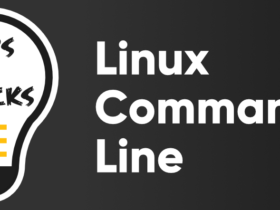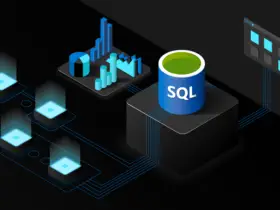

Top 20 Best AI and Machine Learning Software and Frameworks
We all know from our childhood that the soldiers need proper training with the latest weapons. Then, they can win a war over their opposition party. As the same way, data scientists need an efficient and effective machine learning software, tools, or framework whatever we say as a weapon. For developing the system with the required training data to erase the drawbacks and make the machine or device intelligent. Only, a well-defined software can build up a fruitful machine.
However, nowadays we develop our machine such a way that we don’t need to give any instruction about the surroundings. The machine can act by itself, and also it can understand the environment. As an instance, a self-driving car. Why is a machine so dynamic at present? It’s only for developing the system by utilizing various high-end machine learning platforms and tools.
Best Machine Learning Software and Frameworks

Without having a software, the computer is an empty box as it is unable to perform its given task. Just like that, also a human is helpless to develop a system. However, to develop a machine learning project, several software or frameworks are available. Though, I have narrated only 20 best machine learning platform and tools through my article. So, let’s get started.
1. Google Cloud ML Engine

If you are training your classifier on thousands of data, your laptop or PC might work well. However, if you have millions of training data? Or, your algorithm is sophisticated and take a long time to execute? To rescue you from these, Google Cloud ML Engine comes. It’s a hosted platform where developers and data scientists develop and run high-quality machine learning models and datasets.
Insight of this ML & Artificial Intelligence Framework
- Provides AI and ML model building, training, predictive modeling, and deep learning.
- The two services, namely training and prediction, can be used jointly or independently.
- This software is used by the enterprises, i.e., detecting clouds in a satellite image, responding faster to customer emails.
- It can be used to train a complex model.
2. Amazon Machine Learning (AML)

Amazon Machine Learning (AML) is a robust and cloud-based machine learning and artificial intelligence software which can be used by all skill levels of developers. This managed service is used for building machine learning models and generating predictions. It integrates data from multiple sources: Amazon S3, Redshift, or RDS.
Insight of this AI & Machine Learning Framework
- Amazon Machine Learning provides visualization tools and wizards.
- Supports three types of models, i.e., binary classification, multi-class classification, and regression.
- Permits users to create a data source object from the MySQL database.
- Also, it permits users to create a data source object from data stored in Amazon Redshift.
- Fundamental concepts are Data sources, ML models, Evaluations, Batch predictions, and Real-time predictions.
3. Accord.NET

The Accord.Net is a .Net machine learning framework combined with audio and image processing libraries written in C#. It consists of multiple libraries for a wide range of applications, i.e., statistical data processing, pattern recognition, and linear algebra. It includes the Accord.Math, Accord.Statistics, and Accord.MachineLearning.
Insight of this Artificial Intelligence Framework
- Used for developing production-grade computer vision, computer audition, signal processing, and statistics applications.
- Consists of more than 40 parametric and non-parametric estimation of statistical distributions.
- Contains more than 35 hypothesis tests, including one way and two-way ANOVA tests, non-parametric tests like Kolmogorov-Smirnov test and many more.
- It has more than 38 kernel functions.
4. Apache Mahout

Apache Mahout is a distributed linear algebra framework and mathematically expressive Scala DSL. It is a free and open source project of the Apache Software Foundation. The goal of this framework is to implement an algorithm quickly for data scientists, mathematicians, statisticians.
Insight of this AI & Machine Learning Framework
- An extensible framework for building scalable algorithms.
- Implementing machine learning techniques, including clustering, recommendation, and classification.
- It includes matrix and vector libraries.
- Run-on the top of Apache Hadoop using the MapReduce paradigm.
5. Shogun

An open source machine learning library, Shogun, was first developed by Soeren Sonnenburg and Gunnar Raetsch in 1999. This tool is written in C++. Literally, it provides data structures and algorithms for machine learning problems. It supports many languages like Python, R, Octave, Java, C#, Ruby, Lua, etc.
Insight of this Artificial Intelligence Framework
- This tool is designed for large scale learning.
- Mainly, it focuses on kernel machines like support vector machines for classification and regression problem.
- Allows linking to other AI and machine learning libraries like LibSVM, LibLinear, SVMLight, LibOCAS, etc.
- It provides interfaces for Python, Lua, Octave, Java, C#, Ruby, MatLab, and R.
- It can process a vast amount of data, like 10 million samples.
6. Oryx 2

Oryx 2, a realization of the lambda architecture. This software is built on Apache Spark and Apache Kafka. It is used for real-time large-scale machine learning and artificial intelligence. It is a framework for building applications including packaged, end-to-end applications for filtering, classification, regression, and clustering. The latest version is Oryx 2.8.0.
Insight of this AI & Machine Learning Framework
- Oryx 2 is an upgraded version of the original Oryx 1 project.
- It has three tiers: generic lambda architecture tier, specialization on top providing ML abstractions, end-to-end implementation of the same standard ML algorithms.
- It consists of three side-by-side cooperating layers: batch layer, speed layer, serving layer.
- There is also a data transport layer which moves data between layers and receives input from external sources.
7. Apache Singa

This machine learning and AI software, Apache Singa, was initiated by the DB System Group at the National University of Singapore in 2014, in collaboration with the database group of Zhejiang University. This software is primarily used in natural language processing (NLP) and image recognition. Moreover, it supports a wide range of popular deep learning models. It has three main components: Core, IO, and Model.
Insight of this ML & AI Software
- Flexible architecture for scalable distributed training.
- Tensor abstraction is allowed for more advanced machine learning models.
- Device abstraction is supported for running on hardware devices.
- This tool includes enhanced IO classes for reading, writing, encoding and decoding files and data.
- Runs on synchronous, asynchronous and hybrid training frameworks.
8. Apache Spark MLlib

Apache Spark MLlib is a scalable machine learning library. It runs on Hadoop, Apache Mesos, Kubernetes, standalone, or in the cloud. Also, it can access data from multiple data sources. Several algorithms are included like for Classification: logistic regression, naive Bayes, Regression: generalized linear regression, Clustering: K-means, and many more. Its workflow utilities are Feature transformations, ML Pipeline construction, ML persistence, etc.
Insight of this AI & Machine Learning Framework
- Ease of use. It can be usable in Java, Scala, Python, and R.
- MLlib fits into Spark’s APIs and interoperates with NumPy in Python and R libraries.
- Hadoop data source like HDFS, HBase, or local files can be used. So it is easy to plug into Hadoop workflows.
- It contains high-quality algorithms and outperforms better than MapReduce.
9. Google ML Kit for Mobile

Are you a mobile developer? Then, Google’s Android Team brings an ML KIT for you, which packages up the machine learning expertise and technology to develop more robust, personalized, and optimized apps to run on a device. You can use this tool for text recognition, face detection, image labeling, landmark detection, and bar code scanning applications.
Insight of this ML & AI Software
- It offers powerful technologies.
- Uses out-of-the-box solutions or custom models.
- Running on-device or in the Cloud-based on the specific requirements.
- The kit is an integration with Google’s Firebase mobile development platform.
10. Apple’s Core ML

Apple’s Core ML is a machine learning framework which helps to integrate machine learning models into your app. You have to drop the ml model file into your project, and the Xcode create an Objective-C or Swift wrapper class automatically. Using the model is straightforward. It can leverage each CPUs and GPUs for maximum performance.
Insight of this AI & Machine Learning Framework
- Acts as a foundation for domain-specific frameworks and functionality.
- Core ML supports Computer Vision for image analysis, Natural Language for natural language processing, and GameplayKit for evaluating learned decision trees.
- It is optimized for on-device performance.
- It builds on top of low-level primitives.
11. Matplotlib

Matplotlib is a Python-based machine learning library. It is useful for quality visualization. Basically, it is a Python 2D plotting library. It originates from MATLAB. You have to write only a few lines of code to generate production-quality visualization. This tool helps to transform your hard implementation into easy things. As an example, if you want to generate a histogram, you no need to instantiate objects. Just call methods, set properties; it will generate.
Insight of this AI & Machine Learning Framework
- Generates quality visualizations with a few lines of code.
- You can use it in your Python scripts, the Python and IPython shells, the Jupyter notebook, web application servers, etc.
- Able to generate plots, histograms, power spectra, bar charts, etc.
- Its functionality can be enhanced with third-party visualization packages such as seaborn, ggplot, and HoloViews.
12. TensorFlow

I think all the machine learning and artificial intelligence lovers who work with the machine learning applications know about the TensorFlow. It’s an open source machine learning library which helps you to develop your ML models. The Google team developed it. It has a flexible scheme of tools, libraries, and resources that allows researchers and developers to build and deploy machine learning applications.
Insight of this AI & Machine Learning Framework
- An end-to-end deep learning system.
- Build and train ML models effortlessly using intuitive high-level APIs like Keras with eager execution.
- This open source software is highly flexible.
- Performs numerical computations using data flow graphs.
- Run-on CPUs or GPUs, and also on mobile computing platforms.
- Efficiently train and deploy the model in the cloud.
13. Torch

Do you need a framework with maximum flexibility and speed to build your scientific algorithms? Then, Torch is the framework for you. It provides support for artificial intelligence and machine learning algorithms. It’s easy to use and efficient scripting language based on Lua programming language. Also, this open source machine learning framework provides a wide range of deep learning algorithms.
Insight of this ML & AI Software
- Provides a powerful N-dimensional array that supports lots of routines for indexing, slicing, and transposing.
- It has s splendid interface to C, via LuaJIT.
- Fast and efficient GPU support.
- This framework is embeddable with ports to iOS and Android backends.
14. Azure Machine Learning Studio

What we do for developing a predictive analysis model? Typically, we collect data from a single source or multiple sources and then, analyze data using data manipulation and statistical functions, and finally, it generates the output. So, developing a model is an iterative process. We have to modify it until we get the desired and useful model.
Microsoft Azure Machine Learning Studio is a collaborative, drag-and-drop tool that can be used to build, test, and deploy predictive analytics solutions on your data. This tool publishes models as web services that may be consumed by custom apps or BI tools.
Insight of this AI & Machine Learning Framework
- Provides an interactive, visual workspace to build, test quickly, and iterate a predictive analysis model.
- No programming required is required. You have just to connect the datasets and modules visually to construct your predictive analysis model.
- The connection of drag-and-drop datasets and modules form an experiment which you have to run in Machine Learning Studio.
- Finally, you have to publish it as a web service.
15. Weka

Weka is a machine learning software in Java which has a wide range of machine learning algorithms for data mining tasks. It consists of several tools for data preparation, classification, regression, clustering, association rules mining, and visualization. You can use this for your research, education, and applications. This software is platform-independent and easy to use. Also, it is flexible for scripting experiments.
Insight of this Artificial Intelligence Software
- This open source machine learning software is issued under the GNU General Public License.
- Supports deep learning.
- Provides predictive modeling and visualization.
- Environment for comparing learning algorithms.
- Graphical user interfaces including data visualization.
16. Eclipse Deeplearning4j
Eclipse Deeplearning4j is an open-source deep-learning library for the Java Virtual Machine (JVM). A San Francisco company named Skymind created it. Deeplearning4j is written in Java and compatible with any JVM language like Scala, Clojure or Kotlin. The goal of Eclipse Deeplearning4j is to provide a prominent set of components for developing the applications that integrate with Artificial Intelligence.
Insight of this AI & Machine Learning Framework
- Allows configuring deep neural networks.
- Covers the entire deep learning workflow from data preprocessing to distributed training, hyperparameter optimization, and production-grade deployment.
- Provides a flexible integration for large enterprise environments
- Utilized at the edge to support the Internet of Things (IoT) deployments.
17. scikit-learn

A well known, free machine learning library is scikit-learn for the Python-based programming. It contains classification, regression, and clustering algorithms like support vector machines, random forests, gradient boosting, and k-means. This software is easily accessible. If you learn the primary use and syntax of Scikit-Learn for one kind of model, then switching to a new model or algorithm is very easy.
Insight of this AI & Machine Learning Framework
- An efficient tool for data mining and data analysis task.
- It is built on NumPy, SciPy, and matplotlib.
- You can reuse this tool in various contexts.
- Also, it is commercially useable beneath BSD license.
18. Microsoft Distributed Machine learning Toolkit

Nowadays, Distributed machine learning is a hot research issue in this big data era. Therefore, researchers at the Microsoft Asia research lab developed the tool, Microsoft Distributed Machine Learning Toolkit. This toolkit is designed for distributed machine learning using several computers in parallel to solve a complex problem. It contains a parameter server-based programming framework that makes machine learning tasks on big data.
Insight of this AI & Machine Learning Framework
- This toolkit consists of several components: DMTK Framework, LightLDA, Distributed Word Embedding, and LightGBM.
- It is highly scalable and boosting tree framework (supports GBDT, GBRT, and GBM).
- Offers easy-to-use APIs to reduce the error of distributed machine learning.
- With this toolkit, researchers and developers can handle big-data, big-model machine learning problems efficiently.
19. ArcGIS

A geographic information system (GIS), ArcGIS has a subset of machine learning techniques with inherent spatial in addition to traditional machine learning techniques. Both conventional and inherent spatial machine learning techniques play a vital role in solving spatial problems. It’s an open, interoperable platform.
Insight of this Artificial Intelligence Software
- Supports the use of ML in prediction, classification, and clustering.
- It is used to solve a wide range of spatial application like a multivariate prediction to image classification to spatial pattern detection.
- ArcGIS contains regression and interpolation techniques that are used for performing prediction analysis.
- Contains several tools, including empirical Bayesian kriging (EBK), areal interpolation, EBK regression prediction, ordinary least squares (OLS) regression, OLS exploratory regression, and geographically weighted regression (GWR).
20. PredictionIO

Apache PredictionIO, an open source machine learning server which was developed on top of a stack for developers and data scientist to builds predictive engines for any artificial intelligence and machine learning task. It consists of three components: PredictionIO platform, Event Server, and Template Gallery.
Insight of this AI & Machine Learning Framework
- Supports machine learning and data processing libraries like Spark MLLib and OpenNLP.
- Make simple data infrastructure management.
- Build and deploy an engine as a web service efficiently.
- Can response in real-time to dynamic queries.
Finally
Machine learning algorithms can learn from multiple integrated sources and previous experience. With this sort of skill, a machine can perform any task dynamically. A machine learning software or platform aims to develop a machine with this prominent specification. If you are new to artificial intelligence and machine learning, we encourage you to go through this set of machine learning courses. That might help you to develop a project. Hopefully, this article helps you to know about various high demanding artificial intelligence and machine learning software, tools, and frameworks. If you have any suggestion or query, please feel free to ask in our comment section.

























Leave a Reply